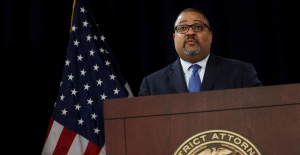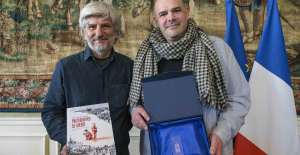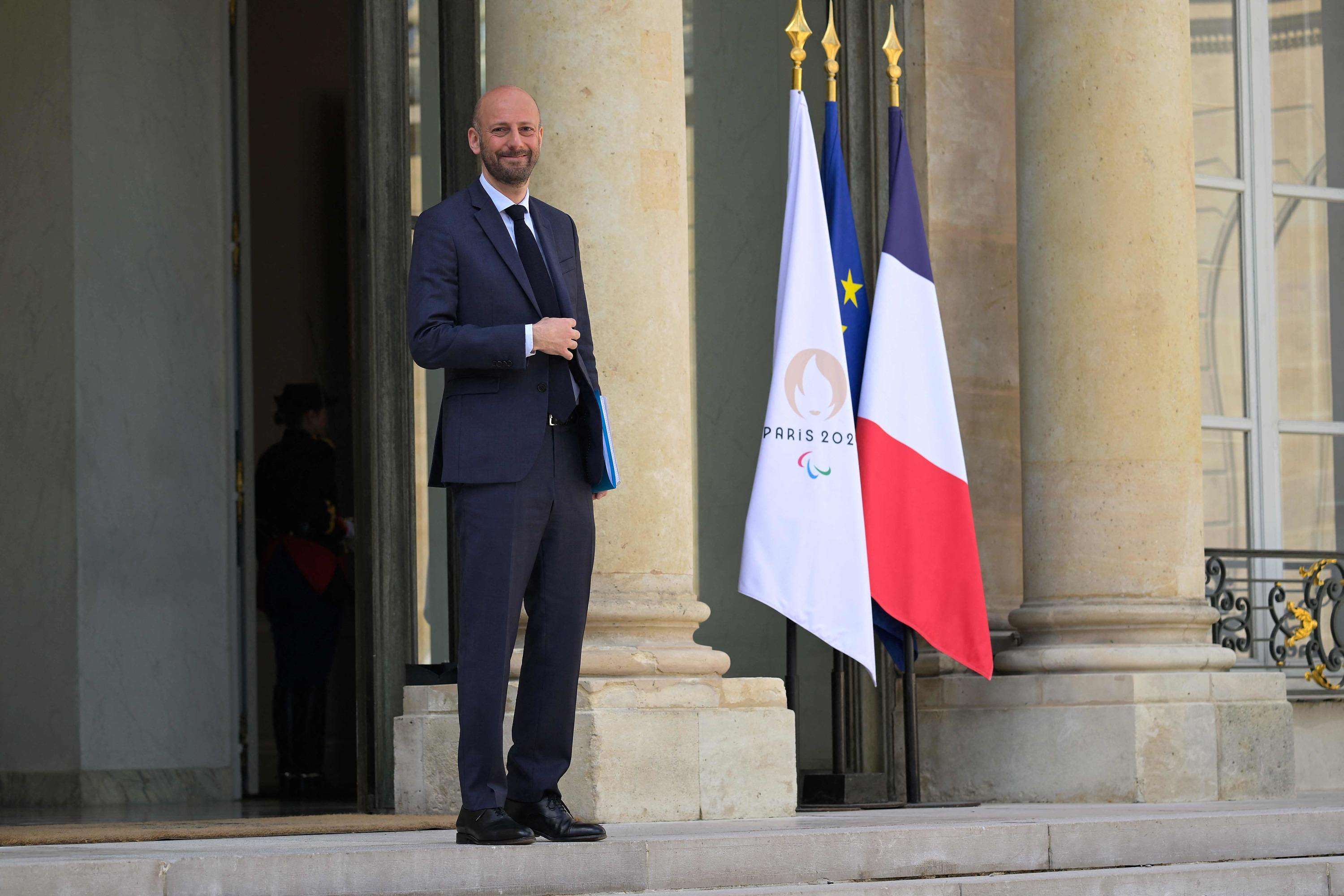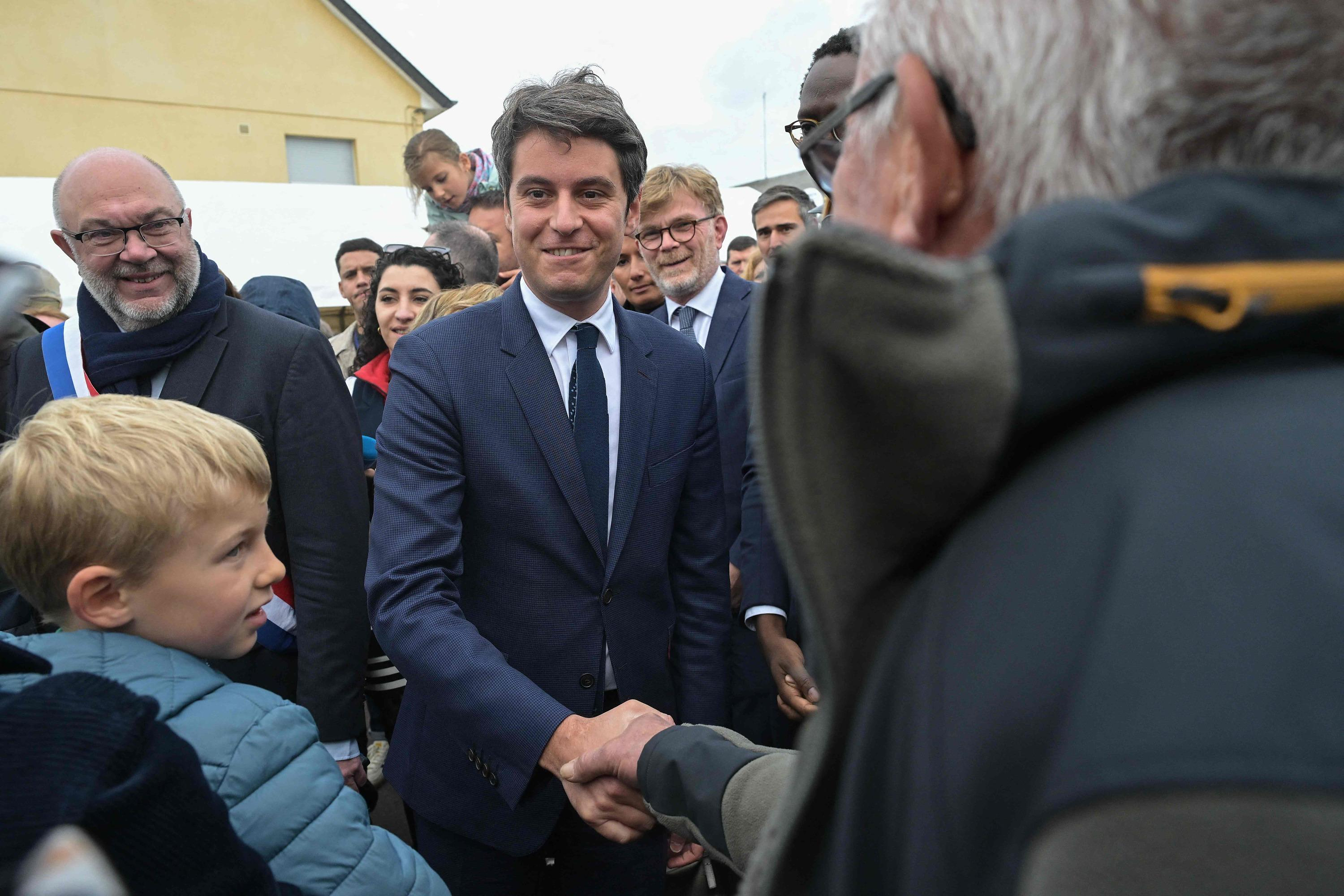Anyone who clicks on “local association” on the SPD Hildburghausen website these days sees a yawning emptiness. With the exception of one assessor, the board says: nothing. That's for a reason. The Social Democrats in the small Thuringian town are in dissolution, the leadership resigned “closely” and “with immediate effect” in mid-January – in protest. The top representatives of the local association feel patronized by the state headquarters in Erfurt.
The dispute revolves around the continued cooperation between the Social Democrats and the Alternative for Germany in the local parliament of Hildburghausen. In the summer of 2020, the SPD participated in three press releases that were also coordinated with the AfD. It was about typical local matters such as the use of the crèche and the redesign of the outdoor pool.
The leadership of the Thuringian SPD met the Hildburghausen comrades for a clarifying discussion. The state office said after the "result" of the conversation that the cooperation was a "mistake", there was no cooperation between the SPD and AfD.
But even then it was unclear whether the local association saw it the same way. Ralf Bumann, SPD parliamentary group leader in the city council, did not respond to a specific request. In the MDR, however, he complained about his party's Erfurt headquarters that factual issues "no longer played a role", but only the question: "How can the SPD work here together with the AfD?"
Incidentally, he has known the people “for umpteen years, they are neighbors, they are in the sports club. I don't see any point of attack with that either.” That didn't necessarily sound like the Erfurt description of the insight into a mistake.
Last year, the dispute popped up again – and more violently than ever. In mid-December, the local parliament decided with 17 yes votes to let the population decide whether the mayor Tilo Kummer, who was nominated by the left, should be voted out of office. The mayor was only supported by the six people in his party on the city council.
All others voted for an early end to Kummer's term of office. Among them were the five MPs from the AfD, which in Thuringia is observed in its entirety as "safe right-wing extremist" by the Office for the Protection of the Constitution, and the representative of Bündnis Zukunft Hildburghausen (BHZ). This was founded by the nationally known right-wing extremist Tommy Frenck in 2009.
The impetus came from the public. Around 1000 Hildburghauseners demanded in a signature campaign that local politics should become active if Kummer did not resign of his own accord. He himself refused. So the city council acted – with the participation of the SPD, which was aware that the necessary two-thirds majority to start the deselection process could only be achieved with the votes of right-wing extremists. The then three Social Democrats justified their approval with the “greater involvement of the citizens” in political processes, which their party also repeatedly called for.
SPD state chairman Georg Maier criticized the actions of the comrades because the weakening of the firewall against the right is damaging to democracy. His objection was probably formulated so sharply because the Social Democrats in the state parliament are coalitioning with the left in a minority government and have repeatedly warned the CDU against making pacts with the AfD around the ethnic-national faction leader Björn Höcke.
But the comrades in the small town would not be persuaded. Instead, the executive board resigned in mid-January on the grounds that “the demands and instructions” of Maier were incompatible with “the grass-roots democracy that is practiced”, as stated in a statement.
The SPD city councilors Ralf and Michael Bumann, father and son, said they decided to take the step to give the members "the opportunity to determine the future orientation of the local association in a democratic election process". However, one city councilor already gave back her SPD party book. Both Bumanns did not want to talk to WELT about the topic or answer questions in writing.
At the end of February, the citizens voted. 1,390 Hildburghausen residents voted in favor of Kummer, and 2,853 voted against his remaining in office. The quorum of 30 percent - based on the total of 9338 eligible voters in the city - was just barely reached. Kummer immediately declared that he would follow the will of the majority of the residents to have him voted out. Various permanent problems with the outdoor pool, fire brigade and municipal childcare were blamed on him, but above all bad communication and obstinacy.
Due to the majority in the local parliament, the mayor had no formal alliance behind him, he had to look for partners for individual projects. Kummer speaks of a "mud fight" and a lack of will on the part of the Social Democrats to cooperate.
As early as the summer of 2020, Kummer said: "What happened there is absurd and all the more painful because the SPD supported my candidacy." The local branch of the Social Democrats, in turn, declared at the beginning of December that the left-wing politician had "ignored" offers from the SPD. ; “many others” would have had the same experience.
SPD country chief Maier said at the request of WELT: "I regret Kummer's deselection." The two city councilors "did great political damage to the region beyond". Joint action with right-wing extremists is "not compatible with the basic anti-fascist values of our party". The Thuringian Minister of the Interior also did not accept the comrades' argument for more citizen participation. "The democratic legitimacy of voting out is low given the low turnout."
According to Maier, the state executive decided "with a large majority" - so there are obviously other positions on the process - to initiate internal regulatory proceedings against the two Social Democrats, which could theoretically end with their expulsion from the party.
Mario Czaja, Secretary General of the federal CDU, certified the SPD a "double dam breach". On Twitter he said: "The SPD not only agrees with the AfD, but even with neo-Nazis!"
The Christian Democrats in Hildburghausen are clearly holding back. The parliamentary group split up in 2020, just like the SPD is doing now. Kristin Obst is the only Christian Democrat on the city council. She announced on social media that she was running for mayor – she did not respond to a WELT request.
It is unclear whether she is supported by the local CDU. The head of the district association, Christopher Other, also did not respond to a request. Other had replaced Obst in 2020 after a long power struggle as chairman of the district association. It looks like further Zoff in Hildburghausen.
"Kick-off" is WELT's daily news podcast. The most important topic analyzed by WELT editors and the dates of the day. Subscribe to the podcast on Spotify, Apple Podcasts, Amazon Music, Google Podcasts, among others, or directly via RSS feed.

 B:SM will break its investment record this year with 62 million euros
B:SM will break its investment record this year with 62 million euros War in Ukraine: when kyiv attacks Russia with inflatable balloons loaded with explosives
War in Ukraine: when kyiv attacks Russia with inflatable balloons loaded with explosives United States: divided on the question of presidential immunity, the Supreme Court offers respite to Trump
United States: divided on the question of presidential immunity, the Supreme Court offers respite to Trump Maurizio Molinari: “the Scurati affair, a European injury”
Maurizio Molinari: “the Scurati affair, a European injury” Beware of the three main sources of poisoning in children
Beware of the three main sources of poisoning in children First three cases of “native” cholera confirmed in Mayotte
First three cases of “native” cholera confirmed in Mayotte Meningitis: compulsory vaccination for babies will be extended in 2025
Meningitis: compulsory vaccination for babies will be extended in 2025 Spain is the country in the European Union with the most overqualified workers for their jobs
Spain is the country in the European Union with the most overqualified workers for their jobs In the United States, a Boeing 767 loses its emergency slide shortly after takeoff
In the United States, a Boeing 767 loses its emergency slide shortly after takeoff The A13 motorway will not reopen on May 1
The A13 motorway will not reopen on May 1 More than 1,500 items for less than 1 euro: the Dutch discounter Action opens a third store in Paris
More than 1,500 items for less than 1 euro: the Dutch discounter Action opens a third store in Paris 100 million euros in loans, water storage, Ecophyto plan… New measures from the executive towards farmers
100 million euros in loans, water storage, Ecophyto plan… New measures from the executive towards farmers New York justice returns 30 works of art looted from Cambodia and Indonesia
New York justice returns 30 works of art looted from Cambodia and Indonesia Les Galons de la BD dedicates War Photographers, a virtuoso album on the Spanish War
Les Galons de la BD dedicates War Photographers, a virtuoso album on the Spanish War Theater: Kevin, or the example of an academic failure
Theater: Kevin, or the example of an academic failure The eye of the INA: Jean Carmet, the thirst for life of a great actor
The eye of the INA: Jean Carmet, the thirst for life of a great actor Skoda Kodiaq 2024: a 'beast' plug-in hybrid SUV
Skoda Kodiaq 2024: a 'beast' plug-in hybrid SUV Tesla launches a new Model Y with 600 km of autonomy at a "more accessible price"
Tesla launches a new Model Y with 600 km of autonomy at a "more accessible price" The 10 best-selling cars in March 2024 in Spain: sales fall due to Easter
The 10 best-selling cars in March 2024 in Spain: sales fall due to Easter A private jet company buys more than 100 flying cars
A private jet company buys more than 100 flying cars This is how housing prices have changed in Spain in the last decade
This is how housing prices have changed in Spain in the last decade The home mortgage firm drops 10% in January and interest soars to 3.46%
The home mortgage firm drops 10% in January and interest soars to 3.46% The jewel of the Rocío de Nagüeles urbanization: a dream villa in Marbella
The jewel of the Rocío de Nagüeles urbanization: a dream villa in Marbella Rental prices grow by 7.3% in February: where does it go up and where does it go down?
Rental prices grow by 7.3% in February: where does it go up and where does it go down? Even on a mission for NATO, the Charles-de-Gaulle remains under French control, Lecornu responds to Mélenchon
Even on a mission for NATO, the Charles-de-Gaulle remains under French control, Lecornu responds to Mélenchon “Deadly Europe”, “economic decline”, immigration… What to remember from Emmanuel Macron’s speech at the Sorbonne
“Deadly Europe”, “economic decline”, immigration… What to remember from Emmanuel Macron’s speech at the Sorbonne Sale of Biogaran: The Republicans write to Emmanuel Macron
Sale of Biogaran: The Republicans write to Emmanuel Macron Europeans: “All those who claim that we don’t need Europe are liars”, criticizes Bayrou
Europeans: “All those who claim that we don’t need Europe are liars”, criticizes Bayrou These French cities that will boycott the World Cup in Qatar
These French cities that will boycott the World Cup in Qatar Toulouse-Racing 92: The liberating entry of Antoine Dupont, the Ile-de-France shipwreck... The tops and the flops
Toulouse-Racing 92: The liberating entry of Antoine Dupont, the Ile-de-France shipwreck... The tops and the flops Premier League: Sheffield United relegated after heavy defeat against Newcastle
Premier League: Sheffield United relegated after heavy defeat against Newcastle Judo: Audrey Tcheuméo consoles herself with a 5th European coronation
Judo: Audrey Tcheuméo consoles herself with a 5th European coronation Tennis: in Madrid, Rafael Nadal wins his revenge against Alex De Minaur
Tennis: in Madrid, Rafael Nadal wins his revenge against Alex De Minaur


















